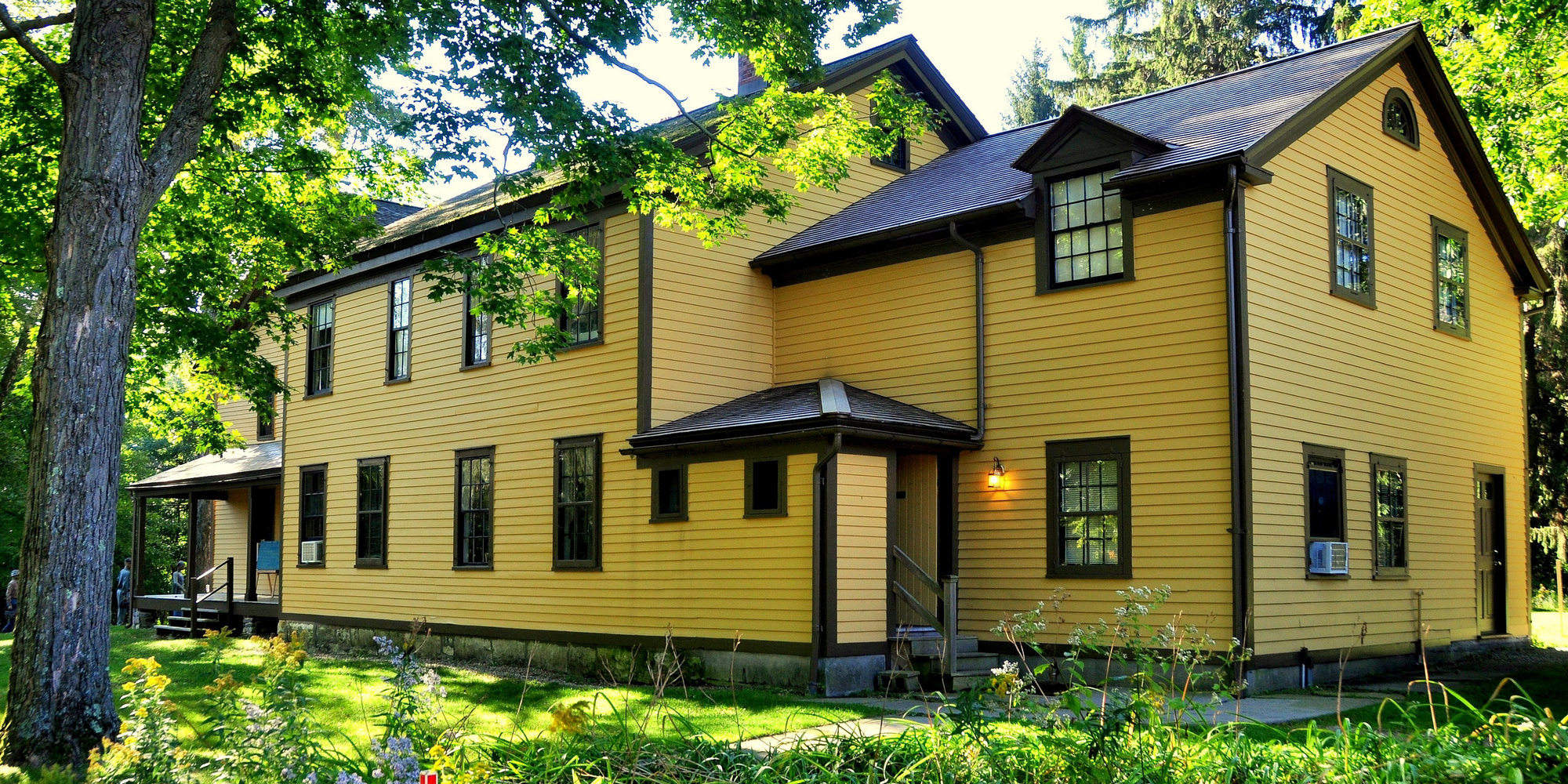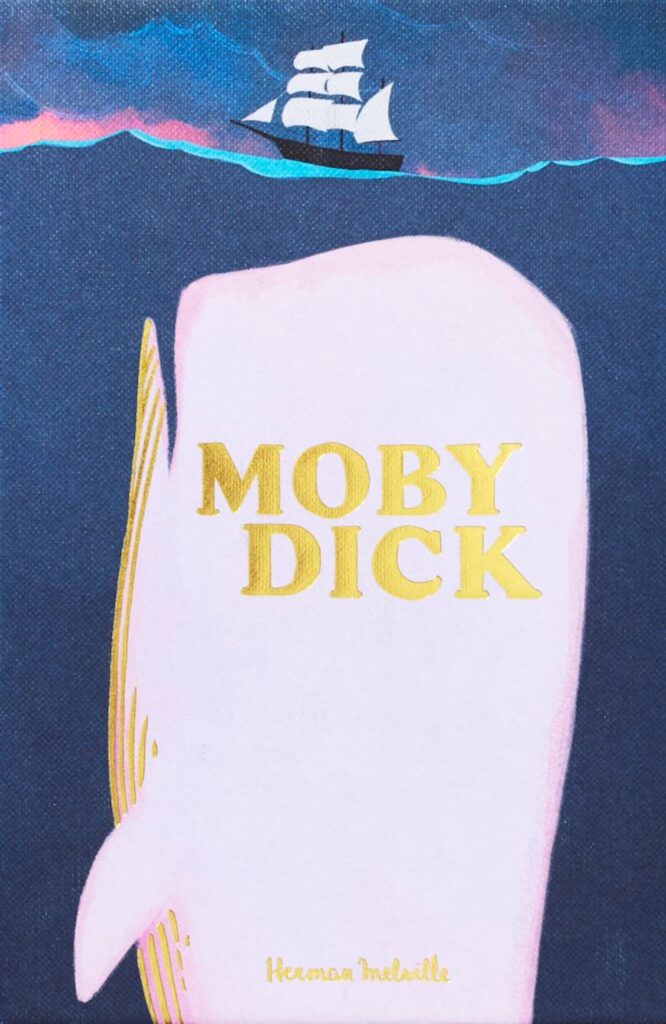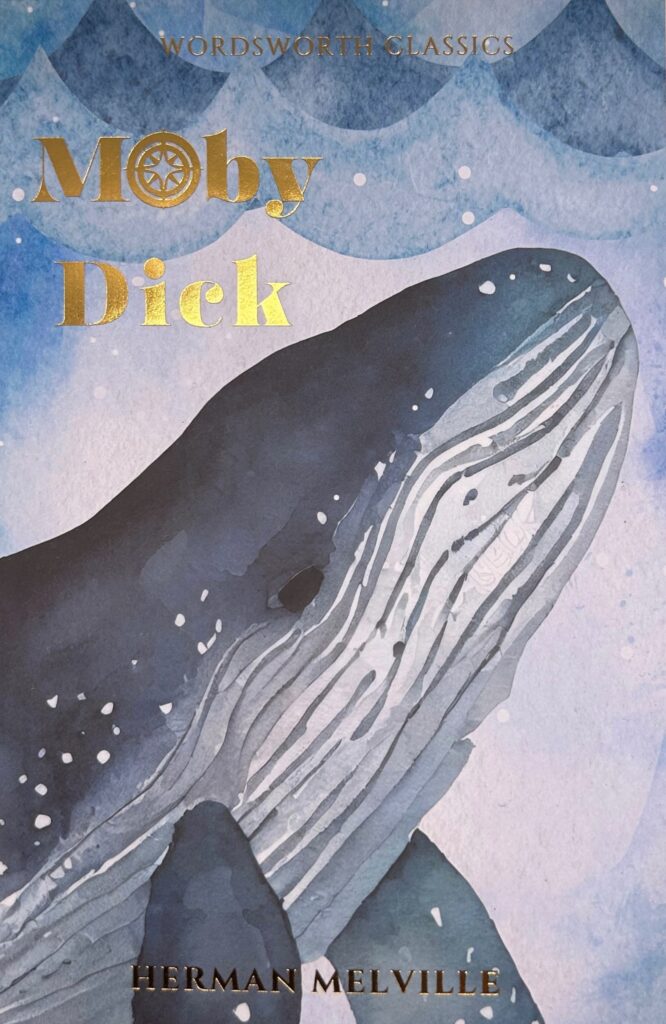
Herman Melville 200
Melville and His Age: Henry Claridge looks at the life of the great American author.
This year marks the bicentenary of the birth of one of the major figures of American culture. Herman Melville, along with Mark Twain, is responsible not only for authoring a ‘classic’ but also for providing his nation with a mythos, not mythology but work that assumes a particular force and resonance for a national culture. Moby-Dick (1851) and Adventures of Huckleberry Finn (1884) are two works of fiction (though Melville’s is closer to the epic than a novel) that embody and enact the dramatic break from the American inheritance of European and, especially, English literary traditions: in Mark Twain’s case his creation of the vernacular style or ‘voice’ of American Literature, in Melville’s case the repudiation of formalist constraints of narrative and plot, so much so that E. M. Forster in Aspects of the Novel (1927) characterised Moby-Dick as belonging to a special category of fiction that he called ‘Prophecy’ and included Melville in the select company of Fyodor Dostoevsky and D. H. Lawrence. But the concern here is not with the ‘prophetic’ qualities of Melville’s writings but with the writer as very much a man of his time.
The United States into which Melville was born on 1 August 1819 was a nation a little over three decades into its independence from Great Britain and already encountering disruptions to the newly- established cultural, political and social order of the young republic that were never anticipated by the Founding Fathers. The fourth national census of 1810 counted a population in excess of nine and a half million, and New York, Melville’s birthplace, was now a large city with over 120,00 inhabitants. The population had more or less doubled since the first census of 1790, and ethnic diversity, mainly driven by German, Scotch-Irish, and Swedish immigration, was challenging the Jeffersonian notion of the farm as the statistical centre of American life and values, the American farmer seen as the moral repository of republican virtue and the nation’s protector against the corruptions of industrialisation. Melville’s family was, to an extent, ‘old stock’: though his ancestry was Dutch his father, Allan Melvill (his mother added the ‘e’ to the surname after her husband’s death), was the son of Thomas Melvill who had distinguished himself against the British in the Boston Tea Party and had been duly rewarded by George Washington with the post of Collector of the Port of Boston, a federal appointee responsible for the collection of port taxes and duties. Ironically, this form of employment was to some extent to stay in their family, for it was through Herman Melville’s friendship with Henry Augustus Smythe, collector for the Port of New York, that the novelist was to secure a position as a customs inspector in New York, a position he held for some twenty years until his retirement in 1885, employment that saved him from penury in the depressing years of his literary obscurity.
A new President took office when Melville was ten years old and with him, the United States looked away from Europe and towards the western territories and the Pacific Ocean. Andrew Jackson (7th President of the United States from 1829 to 1837) was of Northern Irish (Ulster Protestant) descent, his parents were among the last of the great waves of migrants from Northern Ireland in the 18th century. His victory over the incumbent, John Quincy Adams, in the general election of 1828 marked the end of New England’s ascendency in the political and social life of the United States. Jackson was both a military hero (he had defeated the British in the Battle of New Orleans in January 1815) and a new breed of politician/statesman. He promoted the idea of the American hero as a ‘working man’ and the westward extension of the American frontier, facilitated in part by Jackson’s policy of Indian Removal, was closely interwoven with making land available for a rapidly growing population and the concomitant rewards of material prosperity since most of the new wealth enjoyed by the United States in its infancy was generated by space. Government, in Jackson’s view, was an expression of the popular will and the common people were not merely the guardians of democracy but also those best placed to exercise the political responsibilities of the republic.
In the eighteenth century, Melville would have been a gentleman farmer leading a life of leisure (as, indeed, he unsuccessfully tried to be from 1850 when he purchased a farm in Pittsfield in western Massachusetts; it was here that the bulk of his major fiction was written). But the ‘Age of Jackson’ demanded work and his father’s bankruptcy in 1832 meant that the years of his adolescence and youth were characterised by genteel poverty, and by 1837, with little money and no prospects, Melville sought gainful employment, first as a clerk in the New York State Bank, later, a mere eighteen years old, as a school-teacher, and then, following the financial panic of 1837 (largely brought on by speculative lending practices in the western states and the serious crop failures of two years earlier), he went to sea in the summer of 1839, the merchant marine being one area of the American economy that maintained a regular supply of work for itinerant labour. Melville secured a berth on St. Lawrence, a ‘packet boat’ (so-called because they serviced the ‘packet trade”) making the New York to Liverpool run and invariably bringing over from the English port those ‘multiplying millions’ from Europe who were drawn to the prospects of a better life in the United States. On his return to New York some four months later he again found work as a school teacher but by January 1841 he was at sea again, this time aboard a three-masted whaling ship, the Acushnet, and he would not return to the United States, now on board a frigate of the American navy, the United States, for another four years.
In Moby-Dick Melville writes of the whaling-ship as ‘my Yale College and my Harvard’ and thereby innocently gave literary expression to a Jacksonian virtue, identifying republican values with work that involved physical labour or the making of things for the new nation. Both Harvard and Yale were elite institutions, modelled after Oxford and Cambridge universities in England, their purpose to train ministers for the church, and it wasn’t until the middle years of Melville’s life that the federal government enacted legislation that established land-grant colleges (later universities) whose mission was ‘to teach such branches of learning as are related to agriculture and the mechanic arts’. To identify physical labour of the kind Melville had undertaken, both as a merchant-man and as a crew member of a whaler, with education was to elevate the common man, rude in his habits and his mores, to a position in American society previously held by those of inherited privilege. Thus the very idea of investing Captain Ahab, commander of The Pequod in Moby-Dick, with the status of tragic hero reflects the ambitions of Jacksonian democracy, for Ahab is a self-made, self-reliant man, master of his own destiny (or so he thinks), asserting that no man stands above him. Melville gives conscious expression to this ethos of the common man in chapter 26 of Moby-Dick, ‘Knights and Squires’, where he writes of touching ‘that workman’s arm with some ethereal light’, and Andrew Jackson is numbered among those ‘selectest champions from the kingly commons’ chosen by the ‘Spirit of Equality…the great democratic God!’.
While Melville may not, to the casual reader, have much in common as a writer with his Russian contemporary, Leo Tolstoy, both are thought of as philosophical and in some ways intellectual novelists, and Moby-Dick has affinities with War and Peace in its digressive and seemingly artless construction. Yet they are writers rooted in concrete realities, in the world of facts. Few works of fiction are as factual as Moby-Dick and few novelists have written as well about physical labour, and human toil, as Melville does in chapters such as ‘The First Lowering’ or ‘The Carpenter’. He may, in contrast to Tolstoy, be silent about domestic family life in Moby-Dick but as with Tolstoy’s famous description of Constantin Levin mowing with the peasants in Anna Karenina (1878), Melville’s descriptions of arduous, repetitive activities undertaken in the company of other men are infused with an understanding of the dignity and heroism of manual labour. There is, however, a profound difference between the American and the Russian worlds: the mowing scene in Anna Karenina is a ‘set-piece’, there to allow one of Tolstoy’s central characters to enact the sensuous vitality of a rural life far removed from the intellectual and rationalistic preoccupations of ‘civilised’ men and women such as that of Levin’s half-brother, Koznyshev, and Levin can escape it just as easily as he entered it. But Melville’s characters, notably Ishmael, his narrator, Queequeg, Flask, Stubb, and Tashtego, among others, are the progeny of Andrew Jackson and their duty is to work, to make money for The Pequod’s owners and thus, by extension, to further the progressive development of American society that Jackson’s vision of the United States articulated.
Melville was acutely aware of the challenges confronting American democracy in the middle years of the nineteenth-century: the dramatic and exponential impact of technology and industrialisation, evidenced, most obviously, in the extensive descriptions of the methods and tools of whaling and their effects upon men in Moby-Dick; the breakdown of religious stability and the progressive decline of moral certitudes, especially those that had characterised the Puritan and, more broadly, Protestant inheritance of the United States, again to be found in Moby-Dick but also dramatised in the character of the Reverend Mr. Falsgrave in Pierre (1852); the sectional conflict between the North and South over the issue of slavery that was to lead to the American Civil War of 1861-1865, and which Melville addresses, indirectly, but disturbingly, in the novella, Benito Cereno (1855) and also in ‘Formerly a Slave’, one of the poems from his first volume of verse, Battle Pieces and Aspects of the War (1866); and, arguably encompassing all the above, the rapid growth of a capitalist economy, built, in part, on the supply of labour and technical skills brought by large-scale immigration from Europe, that shifted the balance in the United States from the Jeffersonian ideal of a self-sufficient agrarian society to one dominated by the cash-nexus and the market-place, captured most memorably in the mechanical office duties of the scrivener, Bartleby, in the office on Wall Street in the short story that bears his name. Like any artist aware of his own genius (‘genius is full of trash’ he once wrote of his own work) Melville sought to transcend his age and the resurgence of interest in his work that came in the decades of modernism, the 1910s and the 1920s, is indicative of his success in doing so. Since then his major writings have never been out of print and the criticism and interpretation of his works grows exponentially. But as we look back on his life and career from the vantage point of the bicentenary of his birth we should also recognise the degree to which Melville is a man of his time, a patriotic American celebrating the optimistic vision of Jacksonian democracy, yet also one of those ‘thinking men’ that his contemporary, Ralph Waldo Emerson, called on to challenge the conventional wisdom of the day and to cast a critical eye on the American experiment.
Henry Claridge
Image: Pittsfield, Massachusetts – September 17, 2014: American author Herman Melville’s home, Arrowhead, where he wrote the classic novel “Moby Dick”
Credit: LEE SNIDER PHOTO IMAGES / Shutterstock.com
Books associated with this article

Moby Dick (Collector’s Edition)
Herman Melville
